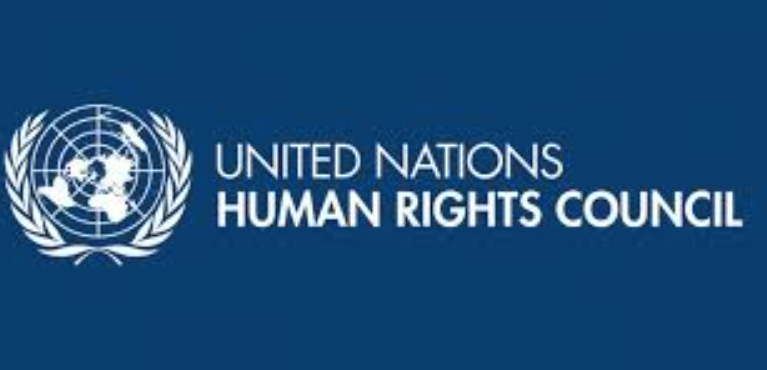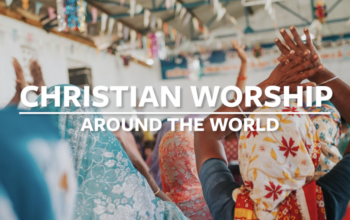Lahore, Pakistan The UN Human Rights Committee (UNHRC) observed that authorities in Pakistan have been unsuccessful in addressing various human rights abuses, such as a notable rise in blasphemy-related violence.
At the 142nd session of the UN Human Rights Committee in Geneva, Switzerland, members pointed out violations, including abductions of girls coerced into converting to Islam, arbitrary detentions, disappearances, and suppression of political dissent during Pakistan’s human rights record review.
Pakistan endorsed the International Covenant on Civil and Political Rights (ICCPR) in 2010, leading to the first assessment in 2017.
The committee observed that Pakistani society has become intolerant of religious diversity, complaining about frequent attacks against religious minorities, including accusations of blasphemy, targeted killings, lynchings, mob violence, forced conversions, and desecration of places of worship.
“Religious minorities are facing a constant threat of persecution and discrimination amid the rise of religious radicalism,” the committee stated.
The Criminal Law Amendment Act of 2023 inadvertently heightened the persecution of minorities and minority sects by elevating the punishment for derogatory remarks against holy figures from three years to life imprisonment.
The committee also sought information on amendments to the blasphemy laws to prevent misuse.
Raising forced conversions, the committee expressed shock at the magnitude of cases of Christian and Hindu girls abducted and forced to convert to Islam and marry their abductors. The committee rejected the state’s reported 74 cases, saying the figure was much higher.
A committee member highlighted that these cases do not reach the courts; when they do, the girls are not returned to their families but are instead handed over to their abductors or placed in shelter homes that lack the essential security to protect the victims. “Some of these girls are also exposed to sexual exploitation.”
The committee asked the state about the progress made in modifying the anti-child marriage law.
It also questioned the Lahore High Court’s decision to increase the minimum marriage age for both sexes to 18.
The Punjab provincial government submitted the Punjab Child Marriage Restraint Act, 2024 to the Punjab Provincial Assembly on April 25. This act would raise the legal age for marriage for both boys and girls to 18. Under previous law, the legal age for marriage for girls was 16.
According to Sarah Ahmad, a member of the Punjab Assembly and the head of the Child Protection & Welfare Bureau (CPWB), the Cabinet Committee on Law has approved the bill but has not yet put it to a vote.
Killings
The UN Rights Committee also pointed out that since 2017, the number of enforced disappearances has been relatively high in Pakistan.
“The Working Group on Involuntary Disappearances quotes the highest number of disappearances over the last five years,” the committee noted. The practice of enforced disappearances is common throughout the region and remains a method employed in the state’s anti-terrorism strategy.
The committee reported documenting at least 7,000 cases of enforced disappearances from 2004 to 2024.
The UN body also considered reports of extrajudicial executions—even outside of Pakistan—of separatists, political opponents, activists, and journalists.
It stated that even the Pakistani Supreme Court had questioned the effectiveness of Pakistan’s Commission of Inquiry on Enforced Disappearances.
The statement highlighted the absence of a law against enforced disappearance in Pakistan, with no bill tackling the issue right now.
The purpose of the UNHRC, the Committee on Civil and Political Rights (CCPR), is to review regularly the implementation and adherence of state parties to the ICCPR.
Consequently, it serves as a fundamental organization that ensures human rights are present on paper and in practice.
The committee sought a thorough explanation from the state regarding the safeguarding of human rights defenders and minorities from potential misuse of the Anti-Terrorism Act, especially forced disappearances.
The committee examined safety measures for journalists and human rights defenders. It noted that despite passing the Protection of Journalists and Media Professionals Act three years ago, their implementation could have been more effective.
Moreover, the formation of the commission specified in the act has yet to occur.
“Threats, harassment, abduction, violence, enforced disappearances, and killing of journalists are rampant, leading to self-censorship,” the committee reported.
It also pointed out Pakistan’s frequent internet outages, blockages of social media apps, and slower connectivity, raising concerns about information control and violations of freedom of expression.
A member mentioned that the May 2023 protests involved a four-day internet blackout and social media shutdown, accompanied by persistent outages and restrictions leading up to the general elections, which impacted voters’ ability to access polling information and communicate.
The committee noted that the Prevention of Electronic Crimes Act (PECA) enabled authorities to charge individuals, especially young people, with blasphemy using digital media.
As we know, this year, the intelligence service was granted permission to conduct surveillance for national security.
Abuse of the PECA has resulted in a reassessment of the surveillance powers of state agencies.
The UN Rights Committee reports that around 3 million Pakistanis are victims of forced labor and servitude, particularly in domestic work, brick kilns, and agriculture.
“After the floods of 2022, more people, particularly children, have been forced to work despite the national and provincial laws,” it stated, asking how the Pakistani delegation “intends to control the menace and the steps taken to combat the forced labor and conditions of servitude, including among children, particularly in the climate change.”
The committee also raised the right to life in the context of climate change. The heat wave has worsened the climate crisis, leading to significant harvest damage and the displacement of hundreds of thousands.
The year 2022 saw 8 million people displaced, living in precarious conditions.
It asked questions about the adaptation plan for 2023 and the lack of a sustainable policy for replacing fossil fuels. It also raised the need for more information on environmental courts and tribunals.
The Pakistani delegation emphasized the National Commission on Human Rights (NCHR) as the primary enhancement strategy. The NCHR, created in 2012, is tasked with government monitoring.
The delegation, which included Punjab Assembly Speaker Malik Muhammad Ahmed Khan, stated that the NCHR could take up any complaints regarding ill-treatment in detention, gender-based violence, and enforced disappearances.
The HRC members emphasized that the NCHR is incompatible with the Paris Principles, which call for it to hold officials like police accountable for violations through the national justice system, rendering it powerless.
The official press release for Pakistan’s Second Periodic Review will be released on November 4. after the 142nd session.
Pakistan stayed at the seventh spot on Open Doors’ 2024 World Watch List as one of the most challenging places for Christians, similar to the previous year.




